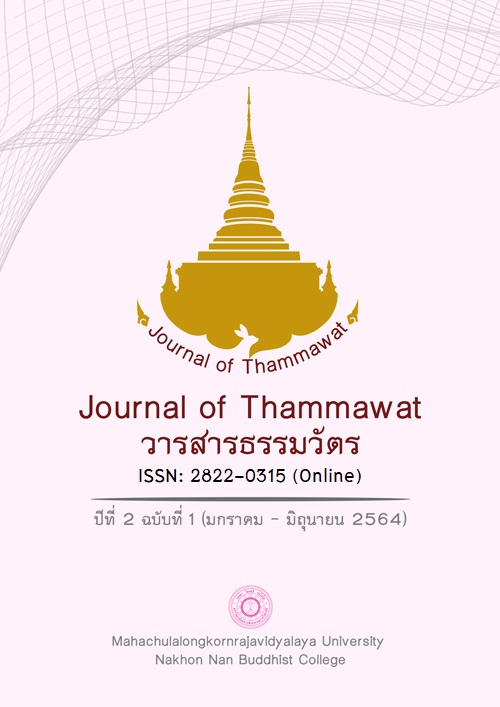The COVID-19 Impacts and Management on Thailand Food Security
Main Article Content
Abstract
Thailand classified COVID-19 as dangerous infectious disease in March 2020 and using several control and prevention measurement against COVID-19 which are critical causes of Thailand food security in 4 aspects i.e. 1) The impacts on food availability: The study found that, in the first period of epidemic, people was shocked and worried about food scarcity. They overstocked up a lot of food even there was an enough amount of food. Then there will be the lock down period until the government can control the pandemic. On this period, there will be food supply chain problem (such as food logistics, food buying, food and agricultural products exporting) On the long-run period, there will be world economic recession. This period will also the period of restoration and preparation. Demand on agricultural products will dramatically increase. 2) The impacts on food access: The study found that in the first period of COVID-19, some group of people could not access to food because the shortage of food supply or expensive food price. Some business operating will stop. Business will lay off the labors or cut their salary. Poor and low-income people will be the most vulnerable group. Moreover, poor people in urban area who used to be the food accessible group will turn to be food inaccessible group. 3) The impacts on food utilization: Adaptation of people for “New Normal” way of life have affected to food consuming behaviors i.e. people prefer online services on food than traditional ways. Therefore, people may have not enough nutritious benefits and have affected on their healthiness. 4) The impacts on food stability: Problems on everyday food accessibility and food accessibility risk in crisis of people have utterly affected to overall food stability particularly in the first and interim periods of COVID-19 crisis.
Article Details

This work is licensed under a Creative Commons Attribution-NonCommercial-NoDerivatives 4.0 International License.
References
กรมควบคุมโรค กระทรวงสาธารณสุข. (2563). โรคติดเชื้อไวรัสโคโรนา 2019 (COVID-19) : ข้อแนะนำและแนวปฎิบัติ สำหรับประชาชน. สืบค้นวันที่ 7 สิงหาคม 2563, จาก https://ddc.moph.go.th/ viralpneumonia/measure.php
กรมควบคุมโรค กระทรวงสาธารณสุข. (2563). รายงานสถานการณ์โรคติดเชื้อไวรัสโคโรนา2019 ฉบับที่ 210. สืบค้นวันที่ 31 กรกฎาคม 2563, จาก https://ddc.moph.go.th/ viralpneumonia/ situation.php
รุ่งนภา พิมมะศรี. (2563). ความมั่นคงทางอาหารของไทย น่าห่วงหรือไม่ในภาวะที่โลกเสี่ยงขาดแคลน. สืบค้นเมื่อวันที่ 2 มิถุนายน 2563, จาก https://www.prachachat.net/d-life/news-472768
วิรัลพัชร ประเสริฐศักดิ์. (2558). ความมั่นคงทางอาหาร: จากพัฒนาการเกษตรสู่เศรษฐกิจพอเพียง. วารสารการเมืองการปกครอง ปีที่ 5 (ฉบับที่ 2), 144 -160.
ศจินทร์ ประชาสันติ์. (2563). การพัฒนาดัชนีชี้วัดความมั่นคงทางอาหาร ภายใต้โครงการขับเคลื่อนประเด็นเกษตรและอาหารเพื่อสุขภาพตามมติสมัชชาสุขภาพแห่งชาติ ครั้งที่ 1 พ.ศ. 2551 สู่การปฏิบัติ. สืบค้นเมื่อวันที่ 2 กรกฎาคม 2563, จาก http:www.nationalhealth.or.t/index.php? option=com_docman&task
สลิลา มหันต์เชิดชูวงศ์. (2563). ทำไมเราต้องสู้เพื่อความมั่นคงทางอาหารในเวลาวิกฤตและหลังจากนี้. สืบค้นเมื่อวันที่ 12 มิถุนายน 2563. จาก https://www.greenery.org/articles/insight- foodsecurity
สำนักงานเศรษฐกิจการเกษตร. (2563). ข้อมูลอัตราการพึ่งพาตนเอง (SSR) ของประเทศไทย, สืบค้นเมื่อวันที่ 8 สิงหาคม 2563. จาก https://www.news.oae.go.th


